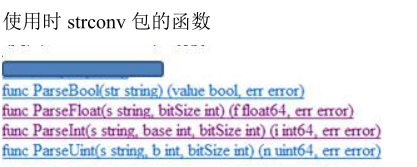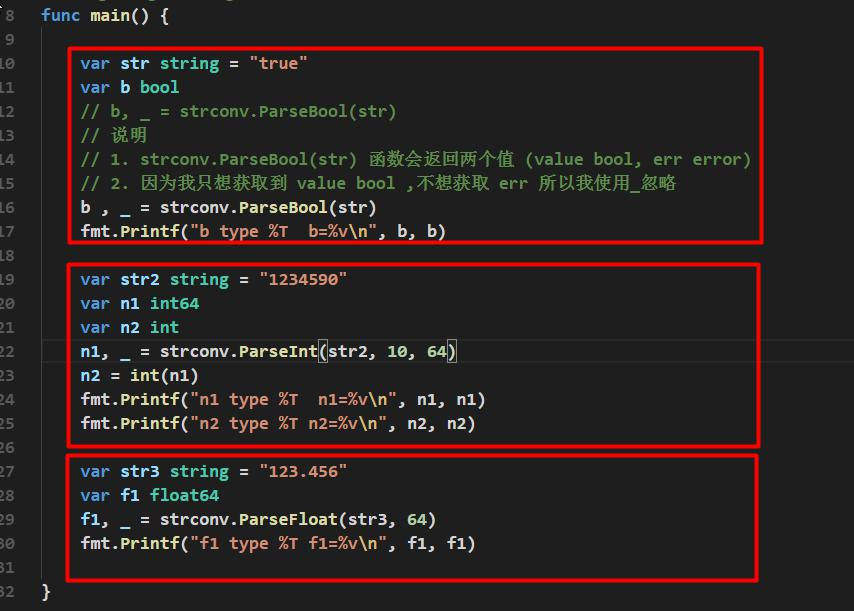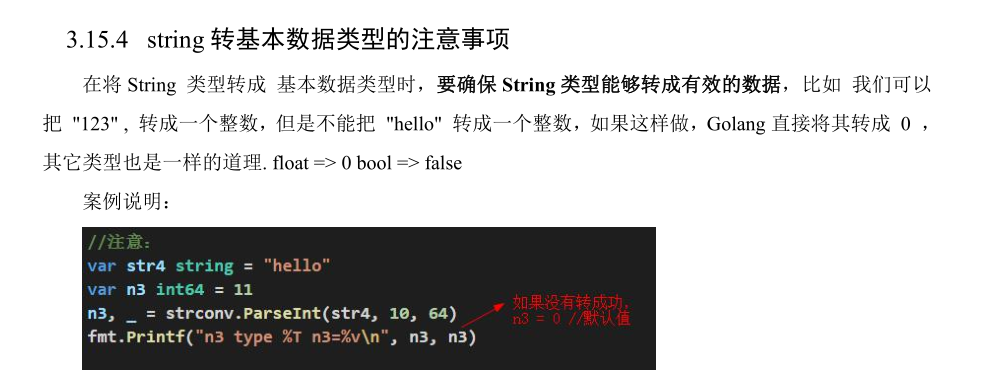字符类型

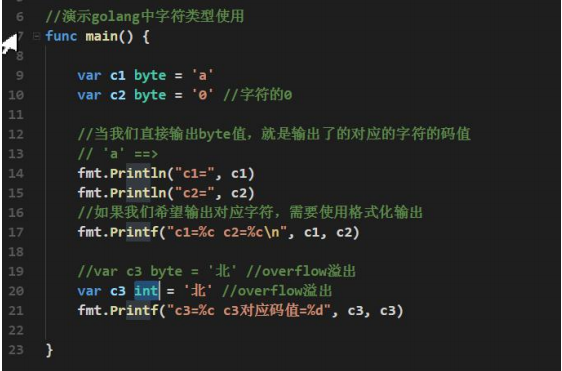


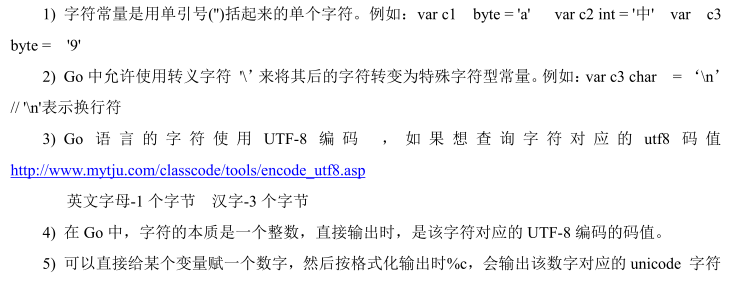




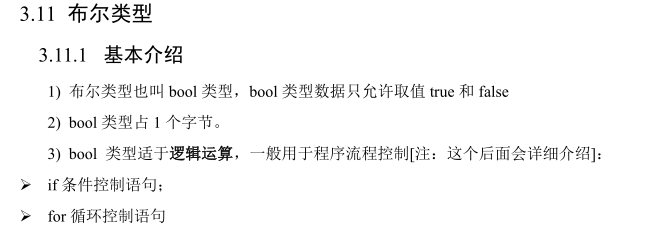
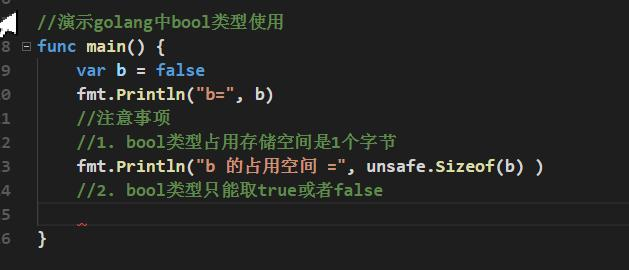





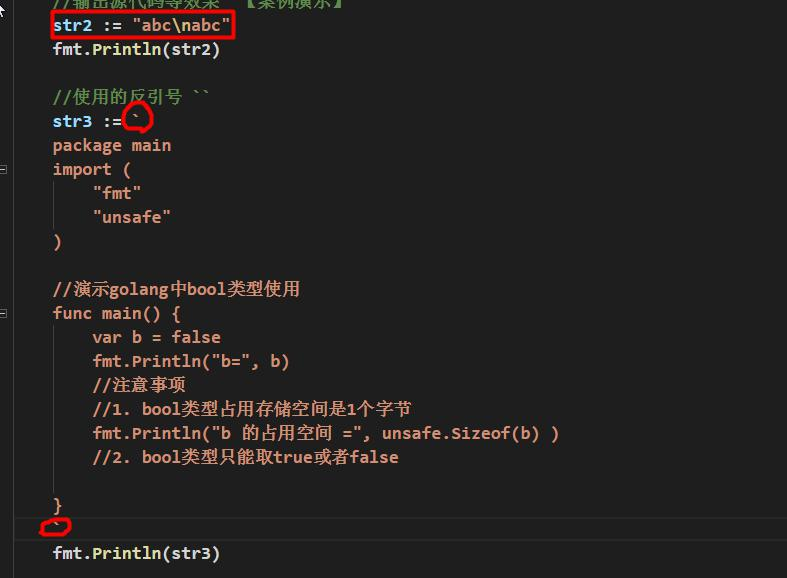







3.14基本数据类型的相互转换
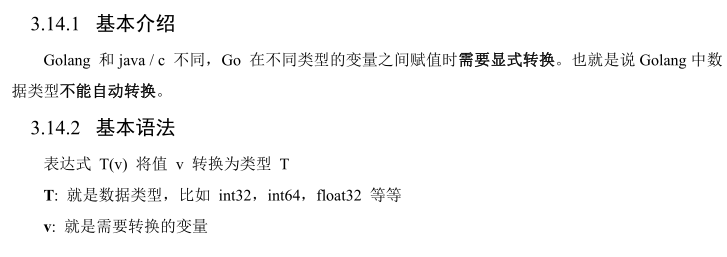
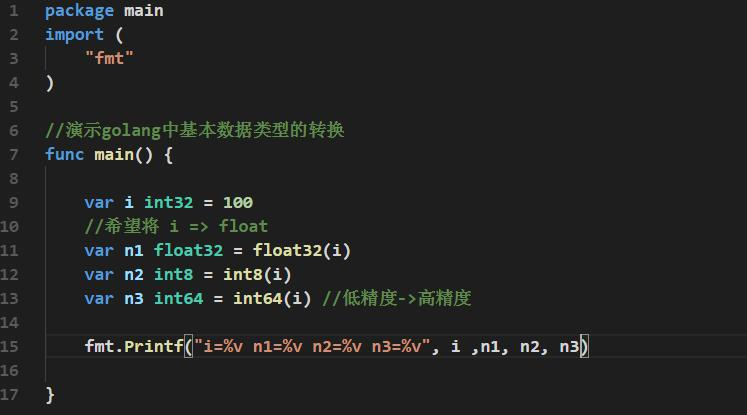

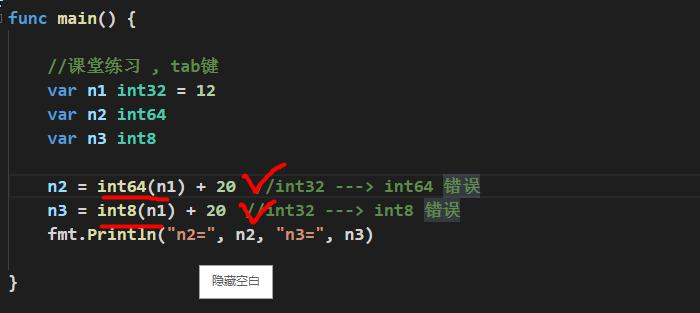

3.15基本数据类型和string的转换
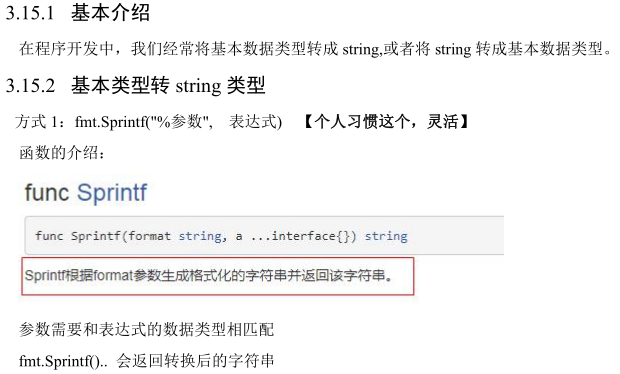
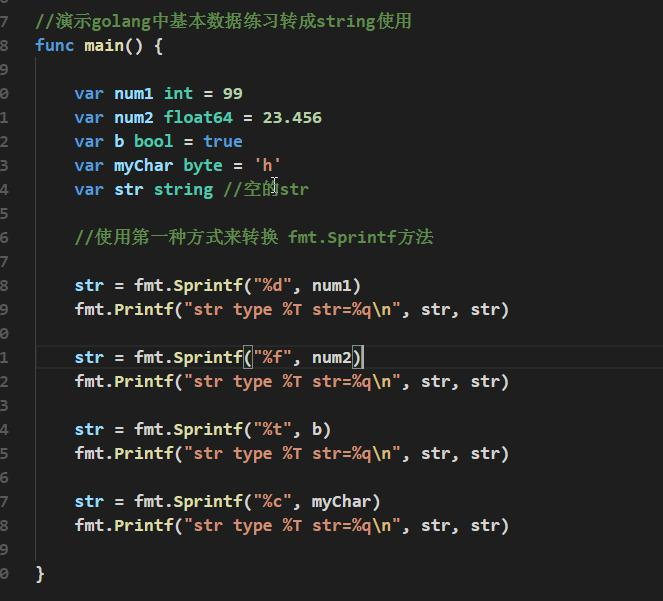


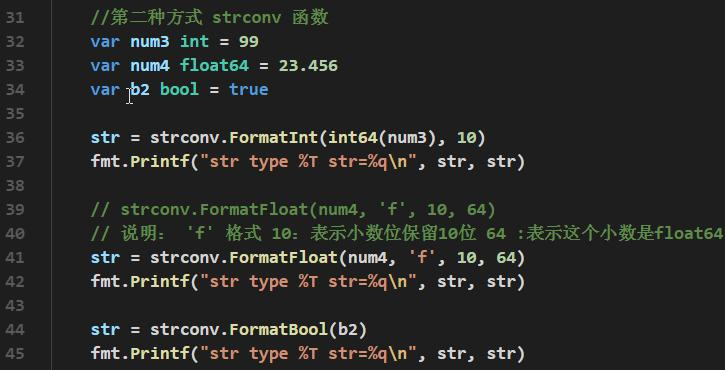

FormatInt
// FormatUint 将 int 型整数 i 转换为字符串形式
// base:进位制(2 进制到 36 进制)
// 大于 10 进制的数,返回值使用小写字母 'a' 到 'z'
func FormatInt(i int64, base int) string
func main(){
var num1 int = 99
//var num2 float64 = 23.456
//var b bool = true
var str string
str = strconv.FormatInt(int64(num1),2)
fmt.Printf("str type %T str=%q
",str,str)
}
返回:
str type string str="1100011"
FormatFloat
/ FormatFloat 将浮点数 f 转换为字符串值
// f:要转换的浮点数
// fmt:格式标记(b、e、E、f、g、G)
// prec:精度(数字部分的长度,不包括指数部分)
// bitSize:指定浮点类型(32:float32、64:float64)
//
// 格式标记:
// 'b' (-ddddp±ddd,二进制指数)
// 'e' (-d.dddde±dd,十进制指数)
// 'E' (-d.ddddE±dd,十进制指数)
// 'f' (-ddd.dddd,没有指数)
// 'g' ('e':大指数,'f':其它情况)
// 'G' ('E':大指数,'f':其它情况)
//
// 如果格式标记为 'e','E'和'f',则 prec 表示小数点后的数字位数
// 如果格式标记为 'g','G',则 prec 表示总的数字位数(整数部分+小数部分)
func FormatFloat(f float64, fmt byte, prec, bitSize int) string
func main() {
f := 100.12345678901234567890123456789
fmt.Println(strconv.FormatFloat(f, 'b', 5, 32))
// 13123382p-17
fmt.Println(strconv.FormatFloat(f, 'e', 5, 32))
// 1.00123e+02
fmt.Println(strconv.FormatFloat(f, 'E', 5, 32))
// 1.00123E+02
fmt.Println(strconv.FormatFloat(f, 'f', 5, 32))
// 100.12346
fmt.Println(strconv.FormatFloat(f, 'g', 5, 32))
// 100.12
fmt.Println(strconv.FormatFloat(f, 'G', 5, 32))
// 100.12
fmt.Println(strconv.FormatFloat(f, 'b', 30, 32))
// 13123382p-17
fmt.Println(strconv.FormatFloat(f, 'e', 30, 32))
// 1.001234588623046875000000000000e+02
fmt.Println(strconv.FormatFloat(f, 'E', 30, 32))
// 1.001234588623046875000000000000E+02
fmt.Println(strconv.FormatFloat(f, 'f', 30, 32))
// 100.123458862304687500000000000000
fmt.Println(strconv.FormatFloat(f, 'g', 30, 32))
// 100.1234588623046875
fmt.Println(strconv.FormatFloat(f, 'G', 30, 32))
// 100.1234588623046875
}
FormatBool
// FormatBool 将布尔值转换为字符串 "true" 或 "false"
func FormatBool(b bool) string
func main() {
fmt.Println(strconv.FormatBool(0 < 1)) // true
fmt.Println(strconv.FormatBool(0 > 1)) // false
}
func FormatInt
func FormatInt(i int64, base int) string
返回i的base进制的字符串表示。base 必须在2到36之间,结果中会使用小写字母'a'到'z'表示大于10的数字。
// Itoa 相当于 FormatInt(i, 10)
func Itoa(i int) string
func main() {
fmt.Println(strconv.Itoa(-2048)) // -2048
fmt.Println(strconv.Itoa(2048)) // 2048
}
string类型转基本数据类型
